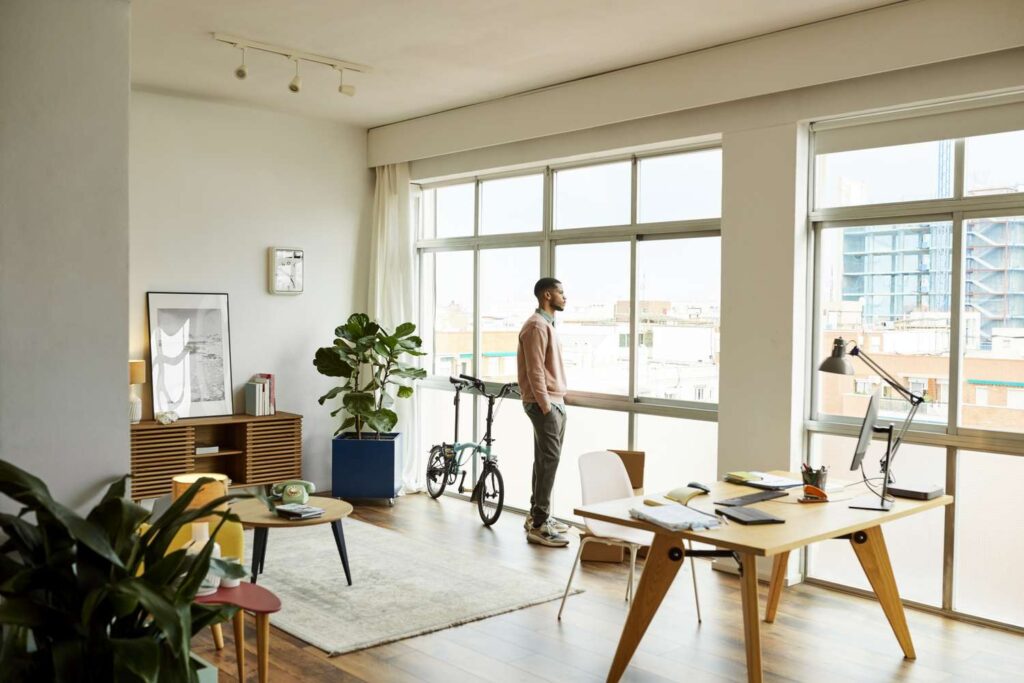:max_bytes(150000):strip_icc():format(jpeg)/rent-vs-buy-5500ccf7eb14492c816ea78a8ce0de8c.jpg)
Key Takeaways
- Buying a home can cost hundreds more per month than renting in today’s interest rate environment.
- Many homeowners overlook hidden costs like maintenance, taxes, and insurance.
- Renting can preserve liquidity, provide flexibility, and offer a better return if you invest the difference.
For years, owning a home has been a core tenet of the American Dream. But in 2025’s high-interest, high-cost housing market, renting may actually be the more financially sound choice, at least for some time and especially if you don’t plan to stay long or aren’t yet financially secure.
When Renting Actually Beats Buying (The Math Will Shock You)
In some places, renting isn’t just more convenient, it can be cheaper. In fact, with the average 30-year fixed-mortgage rate soaring from less than 3% in 2021 to over 7% within about a year, renting became a more affordable option than buying in most major U.S. markets by 2022.
Financial planner and longtime real estate investor Kirk Reagan, the owner of High Flight Financial, crunched the numbers on a $430,000 home with an 80% loan of $344,000 and mortgage rates hovering at about 6.75% as of late July in 2025.
After factoring in monthly home insurance (about $175), maintenance costs ($145), homeowners association fees ($48), and property taxes ($650), Reagan found that renting saved nearly $400 a month in the current high-rate environment. That is, a comparable rental cost is about $2,550 per month compared to nearly $2,950 for the total costs of homeownership.
“It is a significant monthly cost savings to rent,” Reagan says, especially when interest alone on the mortgage can top $1,900 a month.
Reagan’s analysis shows it takes more than six years for buying to financially break even with renting—assuming 4% home appreciation each year and reinvesting the savings from renting at an 8% return.
According to Reagan, in a low interest rate market like 3% to 5%, a good rule of thumb is you should try to live in the house for at least three years. “Unless you know you are going to live in the house for a longer period, renting gives you the flexibility to move any time you want …. And best of all, if the A/C breaks, you call the landlord instead of writing a $10,000 check.”
The Hidden Costs Homeowners Don’t Talk About
Many would-be buyers forget about the costs that don’t show up in a mortgage calculator. Homeownership comes with hidden costs like maintenance, property taxes, insurance, and potential HOA dues, explains Christopher Stroup, founder of Silicon Beach Financial. “These can eat into equity faster than most buyers expect,” he says.
Financial advisor Matthew Hofacre, the founder of Pay It Forward Financial Planning, agrees: “You are now responsible for dwelling coverage,” he notes, adding that homeowner insurance alone can run $1,000 more per year than a renters policy. Additionally, he recommends budgeting at least $200 per month in upkeep, and that doesn’t include surprise repairs like a broken HVAC system.
Then—and perhaps most importantly—there’s the opportunity cost of your down payment. Instead of locking up $80,000 in a home, Reagan points out that renting allows you to invest that money—and the monthly savings—in assets that might yield a better return.
Finding Your Personal Rent vs. Buy Sweet Spot
Stroup and Hofacre both emphasize one thing: Ultimately, the decision is deeply personal, and it starts with understanding your budget and what’s actually affordable. “We have to take emotion out of the equation,” says Hofacre.
Stroup agrees, explaining that removing emotion can help someone focus on finding the right balance between their return on investment, costs, and lifestyle preferences.
Once emotion is out of the equation, you can start by understanding your own cash flow and budget, as well as the factors outside of your control, like interest rates and housing prices. If you feel lost or want help, consider talking to a financial advisor, who can help by modeling the different scenarios.
Hofacre, for example, also factors in emergency savings, retirement contributions, and debt load. “Renting is better for those with large student loan balances, auto loans, or credit card debt,” he says.
Of course, there are lifestyle choices as well: If you’re unsure about where you want to live or anticipate a job change within five years, renting likely makes more sense.
Lastly, flexibility matters too, and renting provides much more flexibility. “You can go month-to-month, year-to-year with renting, ” says Hofacre. “With housing, you may have to sell the home, and you never know how long that might take.”
The Bottom Line
Buying a home can certainly be a smart move—but not automatically, and not for everyone. With today’s elevated mortgage rates and steep home prices, the old rent vs. buy mindset has changed, and renting might be more than just a temporary fallback. In fact, it could be your best financial strategy for the foreseeable future.
So if you’re unsure about your long-term plans or still building financial stability, experts say renting could free up cash, reduce stress, and buy you the time to invest in a home that truly fits—when you’re ready.


